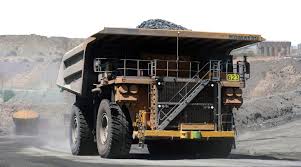According to Sierra Leone’s local chapter of Extractive Industries Transparency Initiative, that country exported $418 million dollars of worth of minerals in 2019. National Coordinator, Mohamed Baimba Kamara, said diamonds constituted 39.37%; rutile 33.33%; iron 3.23%; limonite 2.23%; and gold 2.%.
African countries, especially those south of the Sahara, largely depend on the raw extractive industries in minerals, oil and gas as primary exports and forming their biggest exports. Even so, much of this revenue is mostly augmented by donor funding and high interest rate lending from foreign creditors. 67% of exports in Sierra Leone was from this industry while 65-69% of the government’s own budget is donor funded.
The extractive industries in Sierra Leone make up just 6% of GDP and 4.1% of government’s total revenue in 2019. The picture is not different too from a country like Ghana, often touted as Africa’s fastest growing economic hub. Mining constitutes 41% of their exports and commands 14% of the Ghana government’s total revenue in the same period 2019 compared to Sierra Leone’s 4.1% and making up 5.5% of GDP. Perhaps it is because the country has recently added oil exports to its extractive industries portfolio. For the Democratic Republic of Congo, and according to the EITI, mining contributes 86% of total exports and contributing only 12% of GDP [2016]. Despite this, the DRC hosts some of the poorest people in the world and continues to be plagued by rebel insurgencies, especially in the minerals rich east.
Sub-Saharan Africa’s oil rents have been dismal, sometimes declining to rock bottoms even as their value rise in the world market. In 1971, taxes and royalties amounted to 11.8% of GDP; 1982 – 0.9% of GDP; 2008 – 12.3% of GDP; and 2020 – 2.8%, this according to World Bank estimates.
Many analysts say such dismal data speaks to the fact that Africa continues to be a continent for the exploitation of raw materials with African governments themselves showing little ambition to have foreign companies conduct some of the value additions in situ. Others caution that it takes the required investment in electricity, infrastructure and amenities for this to happen.
South Africa dwarfs the continent as one with industries with the potential to value to not only the extractive sector but goods generally. For example, value additions to minerals and goods amounted to $344.1 billion in 1982, $1.75 trillion in 2014 and $1.61 trillion in 2020, a drop in 2020 that can be explained by covid-19 pandemic that ravaged South Africa
“There is urgent need for a development paradigm shift”, according to Cyril Jengo, an African development analyst. He says Africa has to move from largely facilitating external trade with dominant partners who are out for the kill, to one of making intra-African trade work through free trade that removes strangulating trade barriers between and among States. “It means African leaders have to put seriousness into letting the Africa Continental Free Trade Area promises turn into firm commitments beyond the rhetoric and where Nigeria gets out of its foolishness and take its rightful place as Africa’s potential industrial powerhouse of the 21st century.”
© jengolese.com


Leave a Reply